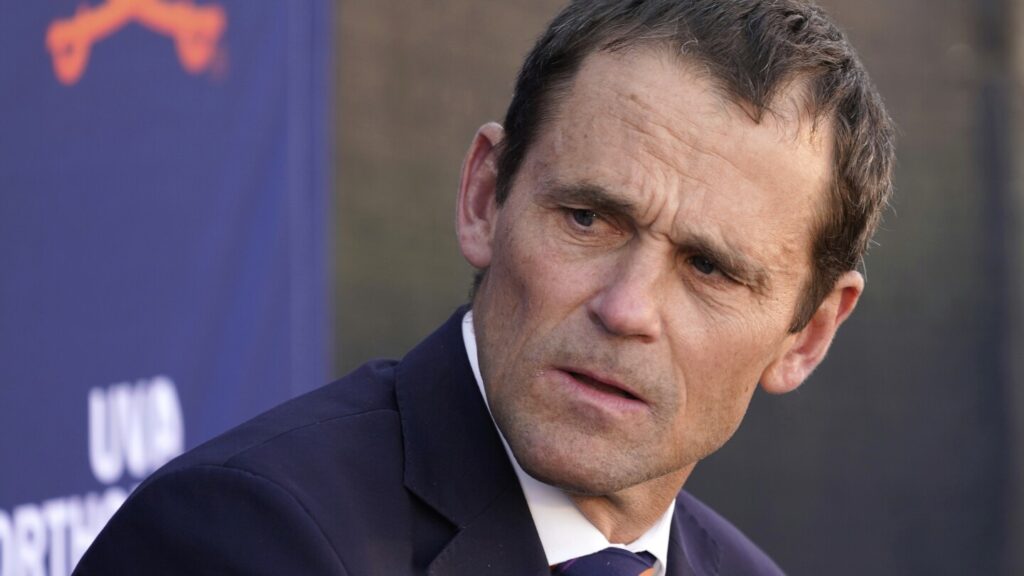
WASHINGTON (AP) — The president of the University of Virginia, James Ryan, announced his resignation on Friday, citing intense pressure from conservative critics and the Trump administration over the university’s diversity, equity, and inclusion (DEI) practices. Ryan, who has led the institution since 2018, stated he would rather step down than “fight the federal government.”
The resignation marks a significant escalation in the Trump administration’s efforts to influence higher education, particularly at public universities. This move extends beyond the administration’s previous focus on Ivy League institutions, broadening its campaign to dismantle DEI initiatives in academia.
Ryan faced mounting criticism from conservative factions who accused him of disregarding federal directives to abolish DEI policies. The Justice Department reportedly pushed for his removal amid an ongoing investigation into the university, according to an anonymous source familiar with the matter.
Pressure from the Federal Government
In a heartfelt statement to the university community, Ryan expressed his deep commitment to the institution but acknowledged his inability to challenge federal authority to retain his position. “To make a long story short, I am inclined to fight for what I believe in, and I believe deeply in this University,” he stated. “But I cannot make a unilateral decision to fight the federal government in order to save my job.”
Ryan had already planned to step down next year, but he indicated that remaining in his role under current circumstances would be “knowingly and willingly sacrificing this community.” The New York Times first reported on the resignation and the Justice Department’s insistence on it, while the department declined to comment on the situation.
Reactions from Education Leaders and Politicians
Ted Mitchell, president of the American Council on Education, criticized the administration’s tactics, describing Ryan’s removal as an example of “thuggery instead of rational discourse.” He added, “This is a dark day for the University of Virginia, a dark day for higher education, and it promises more of the same.”
Virginia’s Democratic senators, Mark R. Warner and Tim Kaine, also condemned the administration’s actions, calling them a “mistake that hurts Virginia’s future.” They characterized the demand for Ryan’s resignation as a result of “‘culture war’ traps.”
The Trump administration’s stance on DEI has been clear since January, when an executive order was signed to eliminate DEI programs and “radical indoctrination” in educational institutions nationwide. The Education Department has since launched investigations into numerous colleges, alleging that diversity initiatives discriminate against white and Asian American students.
Impact on University Policies and National Trends
The University of Virginia has become a focal point in this debate, with conservative critics accusing it of merely rebranding its DEI initiatives. In March, the university’s governing board voted to close its DEI office and end diversity policies in various areas, including admissions and financial aid. Republican Governor Glenn Youngkin praised the decision, declaring that “DEI is done at the University of Virginia.”
America First Legal, a conservative group founded by former Trump aide Stephen Miller, has been particularly vocal in its opposition to the university’s DEI efforts. In a May letter to the Justice Department, the group accused the university of failing to dismantle DEI programs and instead opting to “rename, repackage, and redeploy the same unlawful infrastructure under a lexicon of euphemisms.”
“This week’s developments make clear: public universities that accept federal funds do not have a license to violate the Constitution,” said Megan Redshaw, an attorney at America First Legal. “They do not get to impose ideological loyalty tests, enforce race and sex-based preferences, or defy lawful executive authority.”
Historical Context and Future Implications
Ryan’s tenure at the University of Virginia began in 2018, following his role as dean of Harvard University’s Graduate School of Education. His leadership was marked by efforts to enhance the diversity and strength of the faculty, a priority highlighted in his biography on Harvard’s website.
Until now, the Trump administration’s focus had been primarily on elite institutions like Harvard, which has faced significant financial pressure, including the loss of over $2.6 billion in federal research grants. Public universities, however, are more reliant on taxpayer funding and may be more vulnerable to such pressures. The University of Virginia, with its $10 billion endowment, is among the wealthiest public universities, though it still faces challenges.
The Associated Press’ education coverage receives financial support from multiple private foundations. AP is solely responsible for all content. Find AP’s standards for working with philanthropies, a list of supporters and funded coverage areas at AP.org.







